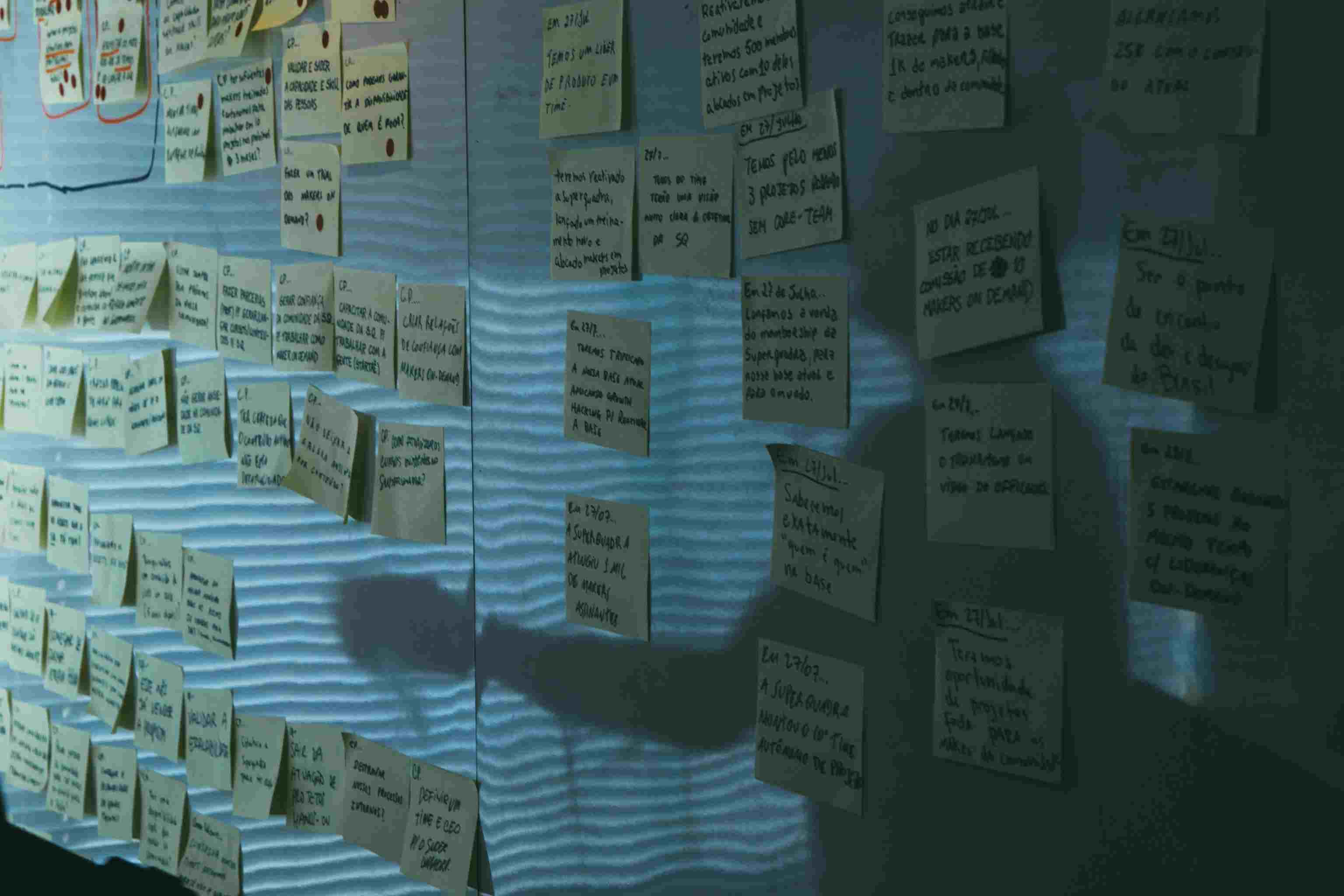Chain of Thought MCP
Task management system that converts natural language into organized development tasks with dependency tracking, implementation guides, and verification criteria through structured reasoning phases.
Skills
Explore the skills and capabilities of this skillset.
Configuration
Customize the skillset to fit your needs.
MCP Server
Connect to MCP Server
Chain of Thought MCP
AI Programmer
Transform your ideas into ready-to-publish HTML pages with AI Programmer by Bika.ai. Create stylish, professional web pages instantly — no coding required.
X/Twitter Manager
An AI-powered Twitter Assistant that helps content creators draft viral tweets with auto-polish, generate tweet ideas, and schedule posts using one-click automation. Grow your engagement and effortlessly boost your Twitter follower growth.
Github Issues Creator
Automate your GitHub workflow with AI. The GitHub Issues Creator generates ready-to-use GitHub issue templates, streamlines issue tracking, and ensures every bug, task, and feature request follows a consistent, professional format — perfect for product managers and agile teams.
AI Writer
Tell me about the AI product or brand — I’ll draft engaging marketing copy, articles, and social media posts tailored to your brand voice and product details, complete with relevant links and illustrations.
Brand Designer
An AI-powered Brand Marketing Assistant specially designed for start-up digital products, helping you quickly generate promotional content, visual concepts, and catchy slogans for social media and product launch campaigns. Save time while creating professional marketing assets to boost your brand impact on Product Hunt, AppSumo, and other platforms.
Email Marketer
Automate lead generation, outbound email automation, and 3-day follow-up email sequences with Bika.ai. Create automated follow-up emails, email automation flows, and email reminders efficiently. Boost sales, BD, and marketing campaigns with AI-powered email automation, streamline lead research, and manage automated email outreach effortlessly.
Stock News Reporter
Track U.S. stock news in real time and get structured reports with key insights, market reactions, and sector summaries. Make informed investment decisions fast.
Requirements Document Writer
Create professional requirements documents instantly with AI. Generate complete requirements templates, project requirements, and user requirements with detailed acceptance criteria and product specifications. Perfect for product managers and project teams.
Office Docs Helper
Create professional business, internal, and HR documents with AI. Instantly generate announcements, reports, and forms to boost office productivity.
Chain of Thought MCP

Customer After-Sales Service Management
This comprehensive template streamlines after-sales service, customer information management, and service ticket management. Automate ticket workflows, manage service processes efficiently, and optimize backend management with personalized workstations. Ideal for retail, e-commerce, home appliance repair, residential property maintenance, and domestic services, ensuring a seamless customer experience and improved service workflow.

Automated Stock Data Retrieval (Python)
The Automated Stock Data Retrieval (Python) template automatically fetches US stock data every day and writes it into a structured table, giving you clean, consistent time series for analysis. Use it as part of your financial data automation stack to power stock trend analysis, dashboards, alerts, and quantitative analysis data for models and backtests. Designed for financial analysts, investment managers, data scientists, quants, and portfolio managers, it saves time on manual data collection so you can focus on research, strategy, and better investment decisions.

AI Batch Image Recognition(OpenAI gpt-4o)
Extract text from multiple images at once with Bika.ai's AI Batch Image Recognition. Supports OpenAI gpt-4o, batch processing, and automated image recognition for fast, accurate results.

SWOT Analysis
Make informed decisions with the SWOT Analysis template — your complete tool for comprehensive situation analysis. Identify strengths, weaknesses, opportunities, and threats with an intuitive analysis workflow. Capture and organize data, classify positive and negative factors, and evaluate strategic choices using automated calculations. Perfect for project managers, business leaders, and decision-makers seeking a clear and actionable threats analysis and opportunities analysis across industries.

Auto Email for New YouTube Videos
Automatically notify subscribers whenever a new YouTube video is released using powerful YouTube automation features. This template sends automated email notifications to boost viewer retention, improve engagement, and support your content marketing emails strategy. With seamless integration and a built-in YouTube marketing tool workflow, you can keep your audience updated in real time, streamline your video marketing automation, and ensure every new upload reaches the right subscribers without manual effort.
HR Team Project Tracker
Streamline HR project management with Bika.ai’s HR workflow template. Our HR automation tools help teams manage staff programs, task assignments, internal requests, and deadlines all in one place. Improve HR task management, reduce manual follow-ups, and keep every project on track with automated reminders and centralized dashboards.

Auto Send Pay Slips
Automate the entire payroll distribution process with the Auto Send Pay Slips template. Effortlessly send accurate employee pay slips, manage payroll data, and streamline your payroll approval process. Use onboarding form templates, employee roster templates, and payroll sheet templates to keep payroll data management organized and error-free. Generate monthly payroll reports, improve payroll accuracy, and enhance labor cost management as part of automated HR workflows. Ideal as an HR automation tool for HR and finance teams that need reliable, standardized payroll operations.

Assortment Planning
The Assortment Planning template is a retail assortment planning solution that helps you manage product assortment planning across categories, seasons, and channels. Use it as a centralized product catalog management system and manufacturer database to support supplier relationship management and retail product management. Track pricing, costs, and product margin analysis, organize your product portfolio planning with clear categories and color variants, and use built‑in category management tools to keep assortments optimized for every store or sales channel.

Base Missions Summary Reminder Daily
Summary one's in a day and send a reminder daily
Chain of Thought MCP
AI News Anchor
Provide one or more RSS feed URLs and get a concise, 3–5 minute daily news brief. The agent reads the feeds, selects key updates, and summarizes them in a neutral anchor tone with source links.

Team Task Distribution & Reminder Automation
Boost team efficiency with the Team Task Distribution & Reminder Automation template — designed for precise task allocation, seamless task assignment, and real-time progress tracking. Create tasks via an intuitive task form, dispatch assignments automatically, and deliver daily scheduled reports on deadlines and task status. Track team roles, monitor task workflows, and ensure on-time completion with automated reminders, group tasks, and centralized task progress management.

Daily Transaction Summary Automation
Automatically track daily transactions and generate detailed transaction summaries with this powerful automation template. Monitor bank accounts in real time, extract income and expenditure from emails, and create daily summary reports. Perfect for personal finance managers, small business owners, and financial analysts looking for accurate account monitoring and streamlined cash flow management.

NPS Customer Referral Value
Collect, track, and analyze customer feedback effortlessly with the NPS Customer Referral Value template. Automate surveys, monitor responses in real-time, visualize insights on the NPS dashboard, and optimize marketing and product improvement strategies. Improve customer satisfaction and loyalty while streamlining feedback management and survey workflows for your team.

Scheduled message reminders for DingTalk groups
Automate daily reminders and group announcements in DingTalk with this message automation template. Easily set up an automation task to send messages using a notification bot, including text, link, Markdown, ActionCard, and FeedCard formats. Improve communication efficiency, reduce manual work, and ensure every team member receives timely and accurate updates. Perfect for teams that rely on scheduled notifications to stay aligned and productive.

Onboard & Engage: New User Welcome Automation
Streamline your new user onboarding with this automated welcome email sequence. Send personalized welcome emails, schedule follow-ups after 4 days, and ensure unsubscribed users are excluded. Perfect for SaaS businesses, marketing teams, and customer success teams looking to improve engagement, retention, and early product adoption through automated email sequence automation, follow-up email automation, and welcome email campaigns.

Email Reminder
Automate your team's notifications with Email Reminder. Send recurring emails, automated alerts, and event reminders at scheduled times to ensure timely communication and keep everyone aligned. Perfect for task management, workflow tracking, and improving team productivity with minimal manual effort.

Remote Internal Communications Planning
Plan, organize, and execute internal events and digital content with this Remote Internal Communications Planning Template. Track content progress, manage communications objectives, streamline digital workflows, and enable stakeholder collaboration. Perfect for HR, executives, and remote teams to align projects, review content, and ensure timely delivery of internal communications.
OKR Tracking
Easily manage and track your company's Objectives and Key Results with our OKR Tracking template. Visualize progress through the OKR dashboard, monitor objective completion, align team goals, and generate automated OKR reports for quarterly reviews. Ideal for project management, team performance tracking, and improving organizational productivity.